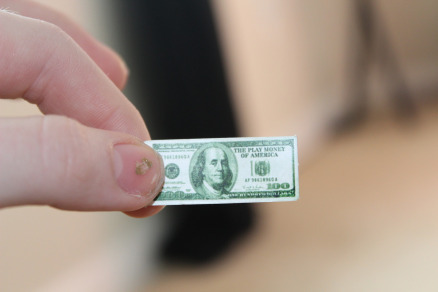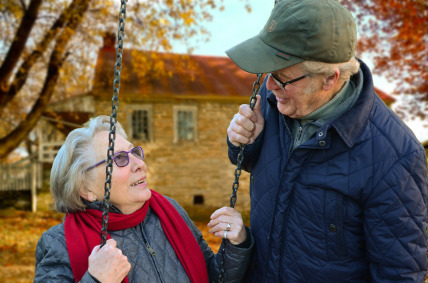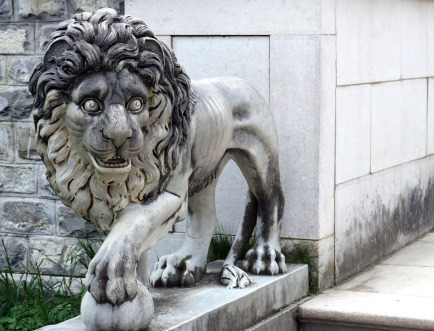Keren Dibbens-Wyatt's Blog, page 35
July 16, 2016
Veil of Tears 101: Worthless

“Stop trusting in mere humans,
who have but a breath in their nostrils.
Why hold them in esteem?” Isaiah 2:22 NIV
Having spent a great deal of the last twenty years unable to do very much at all besides ceiling gazing and cross stitch, I have had a lot of time to perfect feeling worthless. I looked at myself with the world’s eyes and saw only a sick body and a tired mind, a broken heart and nothing much to look at, a person who was too ill to interact with anyone, take very much in or give very much out.
But deciding to stick life out and to continue loving God and my family started to change that perception. It happened slowly, over a long period of time. I found that the deeper I went into prayer, the longer I spent with my Lord, who professed time and time again to love me, the more I could look at my sorry self with kinder, even transformed, eyes. I could learn to look at myself through holy vision. Here was not a useless, social pariah, but a seed, broken on the ground. She only needed some tender care, to be watered and fed, to feel the sunshine of the saviour’s heart-love and grace, to begin to become renewed.
I am not a great deal better physically than when I was at my worst. In some ways, my condition has deteriorated. I can still be defined as a disabled person, as an invalid, in-valid, and no doubt by some people as a waste of space, as a nonentity, a drain on the system. But my head and most importantly my heart are clearer, and the Lord has been bringing me out into new kinds of life. He has spent precious time with me, him deep in my soul and me safe in his heart. It has been life-giving, soul-nurturing, full of unearthly wonders. It has been painful and many parts of me have been rent or refined, given up, lost or changed. I am different, and yet no more or less precious than I was at any other time.
And it is not that I now consider myself worthy of God’s love, or that I look at my former self (a new former self is born and passes every minute of the day) and find her wanting. It is that I know that God looks at the heart and yes he sees the potential, but he also sees the right now, and he loves what is, what was, and what will be all at the same time. He has no more love for one stage over another, in the same way that a parent loves their child for as long as they are theirs to love, whether baby, child or adult, including into eternity. He loves each one of us and esteems each one of us because we are his. He loves us before we grow, he loves us even if we choose not to grow.
Love does not measure or count. It is not tapping its feet with impatience. Love waits, yes. Love endures, yes, but it does not change its nature or its fervency based on any kind of criteria. Love just loves. And once we realise that, it paradoxically makes us eager to become worthy of it, which is the one thing we cannot do! All we can do is seek to love love in return, to co-operate fully with It, to answer both its gentle and its difficult questions with a trusting yes. And then we know that we were loved all the time, and that worth is a foolish, earthly idea that we cannot take into the next realm or the deeper places of our spiritual lives, because worth is a comparative concept. It lays itself against another, or against itself and wants to see which one is better.
Am I good enough yet? It cries. Am I now loveable? What do I need to do? And the answer comes back, you will never be, you always were, and nothing. And I imagine it will most likely take a lifetime for these truths to sink in, especially for those of us told by the world that we contribute nothing, and are valueless. Love tells us plainly, we are priceless. And that is the truth.
©Keren Dibbens-Wyatt
Photo from Pixabay


July 15, 2016
Landscape of Love 90: Circus

The plates spin and the sweat beads on the brow under the harsh yet inadequate lighting. The speed of each circle on its axis all within a greater ring, enclosed and concentrated, the fear, the tension, the potential for ceramic disaster feeds contagion, and the audience all hold plastic chair edges with clammy curled fingers. To one side of this manufactured solar system, something star-like catches my eye, bright Middle Eastern warmth clothed in white. Up, out of my seat, flown to in outrageous love and melded with, heart to heart. Everything else flung to the purgatory of periphery. Here is the centrifugal force pinpointed, centred, begun. Here is the life-changing, heart singing, joy-giver. Here is the main attraction and the ringmaster, in whom all things hold together. Knock those plates flying! Come as partying Greeks and dash them to the ground! Spin and struggle and juggle no more! Hold fast only to the one thing that matters and be love, oh be love!
© Keren Dibbens-Wyatt 2016
Photo from Pixabay


July 14, 2016
Veil of Tears 100: Aging

“in the day when the keepers of the house tremble, and the strong men are bent, and the grinders cease because they are few, and those who look through the windows are dimmed,” Ecclesiastes 12:3
It seems appropriate to pause on our hundredth day of looking at human misery and hope and wish ourselves a happy “century” by looking at old age. Here we have dear Eccles again, with a humorous metaphor of the aging body as a house or mill that is slowly coming to a frail halt. The limbs begin to shake, the back bows, the teeth are few, and the eyesight is not what it used to be. No it is not much fun getting older.
And yet… the Bible also tells us that there are compensations:
“Gray hair is a crown of splendor; it is attained in the way of righteousness,” (Proverbs 16:31 NIV) How different from the world’s insistence that we dye away every sign of grey and trim every unruly hair! The worldly, fleshly view places all the value and glory on the young, the good-looking, the fit and healthy, but it misses the treasure as always, of wisdom and insight and experience. We are forever asking questions about how to “do” church better, what vision to follow, how to be better disciples of Christ. Do we stop and ask the advice of those who have seen far more than we have, who have watched trends come and go and who have settled into a deeper place untouched by the ungodly ways of shifting culture?
Not all older people have chosen the path of wisdom of course, and one can find many who are entrenched in bitterness or so set in their ways that there is little good advice to be gleaned from their conversation. But so many have wonderful stories, almost whole lives to share with us, if we will just take the time to listen, to really listen, to watch the gleam in the eye and see the years fall to one side as they speak their histories and tales.
Another advantage to getting older is that we start to care less about the opinion of the world and of others, we hear the critical voices far less, and this can set us free to hear the deeper, more affirming word of God in our lives. It really can feel like a liberation to realise that we are no longer beholden to this temporal kingdom and can look further into an eternity that begins now and is all about love and encouragement. And sometimes, just sometimes, we meet an elderly person so close to that newness burgeoning within them, that their skin is translucent, not with age or frailty, but with becoming. And that is a signpost to heaven.
©Keren Dibbens-Wyatt
Photo from Pixabay


OUT SOON: The Garden of God’s Heart by Keren Dibbens-Wyatt
July 13, 2016
99: Trying too Hard

“What do people get for all the toil and anxious striving with which they labour under the sun?” Ecclesiastes 2:22 NIV
It is good to work. If you are blessed with having found work, especially the work you feel God prepared in advance for you to do, as Paul expresses it in Ephesians, then you are a fortunate person indeed. The writer of the book of Eccles (as you know by now I call it) is not keen on the idea of work, labour or storing things up for oneself. He rightly tells us that we can’t take any of it with us when we die, that life is short and that most of it seems pretty pointless.
He’s not the cheeriest of chaps, really, old Eccles. I am not sure I’d want to spend a great deal of time with him. I don’t think he’d be one of my choices in that game of fantasy dinner guests. And yet, when I am feeling low, I agree with him. If I am down and exhausted, the thing I’m most likely asking myself is “What’s the point?” It can feel like all the pain and effort, all the trying, all the striving, is all for nothing. Even the things that I enjoy doing, like writing and art, seem like just so much chaff blowing away on the wind.
Perhaps the best thing we can do with this realisation is to embrace it. There really is no point storing up earthly wealth, so that ambition can be let go. Being poor is not a lot of fun though, and debt leads to a great many problems as well as terrible stress, and perhaps this wasn’t something that preoccupied the writer of Eccles that much as he is widely believed to be King Solomon, who wasn’t exactly short of a bob or two. So, once needs are met, we might say, there is not much point chasing after wealth or status for its own sake.
So what is worth striving for? What is worth going after? Fame? Wisdom? Pleasure? No, our advisor doesn’t find these things worth the trouble either. So what then? What is that pearl of great price that Jesus mentions? That treasure that is so great that we should immediately go and sell all we have to procure?
When I think about this, I think of Moses. He lived to the ripe old age of 120 with none of his faculties diminished, after having spent 40 years maturing, another 40 regretting a crime and becoming humble, and finally 40 years serving the Lord faithfully. And yet at the end of all that, he did not get to enter the Promised Land with his people.
We might well say his reward was to come later. That he was to enter a different Promised Land and walk with his God. Yes, that’s true. But for Moses, that eternity had already begun. He was already walking with God, and more intimately than with anyone else who had come before, it seems.
he said, “Listen to my words:
“When there is a prophet among you,
I, the Lord, reveal myself to them in visions,
I speak to them in dreams.
But this is not true of my servant Moses;
he is faithful in all my house.
With him I speak face to face,
clearly and not in riddles;
he sees the form of the Lord.” Numbers 12: 6-8 NIV
Likewise, when Mary the sister of Martha and Lazarus sits at the feet of Jesus to adore him and learn from him, Jesus calls this “the one necessary (or needful) thing.” Relationship with the Lord, then is the key to the meaning of life. This is where we begin our eternity and how we are led deeper into it. In gazing more and more at the Lord of all things, into the heart of love itself, the more the peripery, the other fields, the lesser pearls, all fade into nothingness and we can be sure that we have found something meaningful under the sun, something worth pursuing, worth going after. And the best thing is that it is not something we need to strive for, but something that we simply choose.
“Come to me, all you who are weary and burdened, and I will give you rest.” Matthew 11:28 NIV
©Keren Dibbens-Wyatt
Photo from Pixabay


July 11, 2016
Veil of Tears 98: Disappointed

“They are distressed, because they had been confident; they arrive there, only to be disappointed.” Job 6:20 NIV
When we get to our destination, and after all those hours travelling, that tearing of hair and yelling at the kids, having spent weeks washing and sorting the right laundry, waiting around in airports, and we find the hotel is infested with cockroaches, we are disappointed by circumstances.
When we put our all into something, maybe our heart into writing a poem, and no-one notices, worse, someone gives us harsh criticism, or we put our best efforts into a friendship and the friend ditches us at the first sign of someone who is better connected, we are disappointed by people.
When our dreams are tied up in frazzled nothing days where there is no time and we can’t get motivated, or the procrastination or our own self-doubts stop us from even thinking about beginning, then we are disappointed in ourselves.
And when our prayers seem to go unanswered and yet more difficulties come, and there is only silence where we were hoping for loving words and affirmation, then we can also find ourselves disappointed in God.
Hopes and dreams are wonderful things, but they are also deeply painful, concealing as they do, great pits of despair and disappointment which we fall into time and time again, the golden boughs above us laid as if purposely criss-crossed above the top of the hole, luring us into expectation and letting us fall flat on our faces. Life really can feel like that a lot of the time.
But the Lord does not give us hopes in order to cause us to fall into despair, and he does not give us dreams in order to have them break our hearts when they arrive in a different form to the one we imagined. Our God is a God of “endurance and encouragement” (Romans 15:5) and though often he works through miracles, we see over and over again in the Scriptures and in our lives, that he works far more frequently through the process of blessings. A growth and a blossoming, with all in its rightful place and season.
If the Lord gives us silence, or a no, then that is in some unfathomable way, what we need right now. It is sometimes, of course, that our own emotional pain is so loud we cannot hear over it, or through it, but where the silence is God’s, it is sent gently and with love. Perhaps it is an opportunity to exercise faith and patience, or an invitation to simply sit and learn to listen in a different way. Maybe it is a direction in itself to see the Lord in other things, to experience him in his creation, through other people, in our own actions and self-love, in liturgy, in any number of different ways rather than in the ways to which we have become accustomed and which are now, not enough on their own. The Lord is always wanting his relationship with us to become deeper, and wider, greater, more and more full, and more centred around his Trinitarian personhood. There are many times in our spiritual lives where a painful epiphany needs to move that forward. At such times, disappointment can be a catalyst, like a stick of dynamite that shifts some rubble and allows us to enter a new place, a new level of intimacy, a new room, perhaps of Teresa of Avila’s Interior Castle. We are downcast, disheartened, and so we move deeper into God, into that one necessity, that one being who is love, and who will, at the end of the journey, never ever disappoint us.
©Keren Dibbens-Wyatt
Photo from Pixabay


July 10, 2016
Veil of Tears 97: Frozen

“Terror and dread fall upon them; because of the greatness of your arm, they are still as a stone, till your people, O LORD, pass by, till the people pass by whom you have purchased.” Exodus 15:16 ESV
Fear and terror can be numbing. We use the word “petrified” meaning turned to stone to describe that feeling of being so frightened that we can’t even move; we say we were so scared that we were frozen to the spot. Like a rabbit in the headlights, the fear overpowers us and although our only hope is to move, we simply cannot do it.
There is a phenomenon called sleep paralysis which is surprisingly common. This is where we wake during the night to find that we feel weighed down and unable to move. It is very frightening, but is a neurological paralysis caused by the body’s own self-defence mechanisms. It is put in place to stop us acting out the dreams we are having during REM and actually is quite normal. It is just frightening when it carries on over into waking. But it does pass and is usually nothing to worry about.
Likewise, the frozen reaction to fear happens for a reason. It is an age old response to overwhelming danger, the third option after the well-known “fight or flight.” If neither of these options is possible or credible, we may freeze. It is a lot like playing possum, a way of trying to convince the threat that we are not there, or not alive, or not worth chasing. Victims of violence often feel ashamed that they froze when attacked, but in actual fact, they were beyond their rational selves and only doing what the ancient survival programming was telling them to do. Sadly though, the frozen experience can become an ingrained part of the trauma.
Thank God that we serve the Lord who knows all this and made us just as we are. He understands the parts of us that need healing and knows that there are times for keeping still, things too scary to be faced, parts of ourselves and our histories we need to protect ourselves from, things that cannot be outrun. Gently he will lead us to the cure.
Like Aslan breathing warm life into the statues frozen in front of the White Witch’s palace, he comes with a gradual freedom that will enable muscles to move again; hope that will help us find the determination and courage to stretch, and an abundance of grace and mercy that as we take it in, will enable us to forgive, to begin again, to come back to life.
©Keren Dibbens-Wyatt
Photo from Pixabay


July 9, 2016
Veil of Tears 96:Hedonism

“But see, there is joy and revelry,
slaughtering of cattle and killing of sheep,
eating of meat and drinking of wine!
“Let us eat and drink,” you say,
“for tomorrow we die!” Isaiah 22:13
What is so terrible about enjoying life, we might wonder reading this verse. But this was happening whilst God’s people were supposed to be being sober, lamenting and repenting. Feasting is all very well but God advises over and over again that it needs to be balanced with fasting. Ramadan has just come to an end, a month of fasting in daylight hours for our Muslim friends. Eid Mubarak! During Lent, Christians also traditionally fast. Abstaining is good for us as long as it doesn’t turn into the idol of a constant and strict asceticism. Focussing too much on the things we are not meant to do is just as harmful as overindulgence, especially if it becomes a source of pride. A sure sign we have overdone the self-denial is when we start to judge other people for enjoying the things we’ve given up.
Treating every day as if it were a party though, leaving no room or time for sobering up, for replenishing our stocks, is a foolish way of living too. If there is no discipline, there is no enjoyment in the freedoms. If there is no lack, there is no real abundance, if there is no holding back, there is no release. If we simply allow ourselves every luxury without having worked for it, without having invested ourselves in the growing of the crops or the making of the wine or whatever it may be, we are simply idling our way through life and will not only learn nothing, but appreciate nothing.
A long cool drink of water tastes better after an afternoon’s harvesting. There is no room in God’s house for gluttony, sloth or hedonism, because pleasure for its own sake leaves out the one necessary thing, which is love. If we are simply consumers, with no investment of time, compassion or work, with no understanding of the process that creates abundance, then we are on a hiding to nothing.
This goes as much for spiritual processes as it does for earthly goods. We need to have sacrificed or suffered or loved, in order to comprehend that nothing grows except that a seed first falls to the ground and splits open. If we are simply receiving spiritual bounty and ecstasy, without first building a relationship with God and an understanding of kingdom ways and means, we will not mature in our faith, but remain shallow and self-centred. We will imagine that the reason for being spiritual or praising God, or being in a fellowship, is so that we should feel good. And whilst feeling good is often a side effect of faith, it has its centre elsewhere. Without loss, there is no true abundance.
©Keren Dibbens-Wyatt
Photo from Pixabay


July 8, 2016
Landscape of Love: Folly

An act of madness in the garden, abrupt and incongruent. Marble eccentricity erupting from the ground, an overflow from the sewers of sanity. Freedom from the Victorian constricted neatness, the sculpted hedges, the perfect maze, an escape from the yellow wallpaper and the flock velvet. This icon of silliness, standing in proud dilapidation, a stone handlebar moustache from another age, somewhere to stop and have tea with a hatter and ponder the wonders of bygone bonkersness and an upside down kingdom, where disciples are found in trees and saviours in stables.
© Keren Dibbens-Wyatt 2016
Photo from Pixabay







